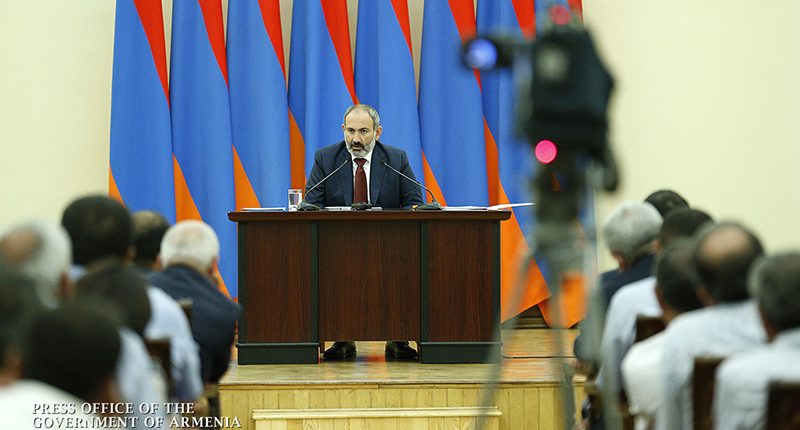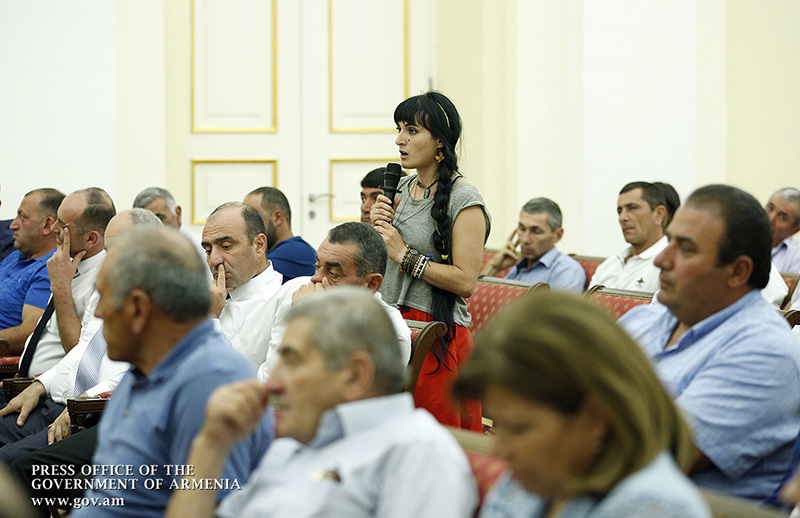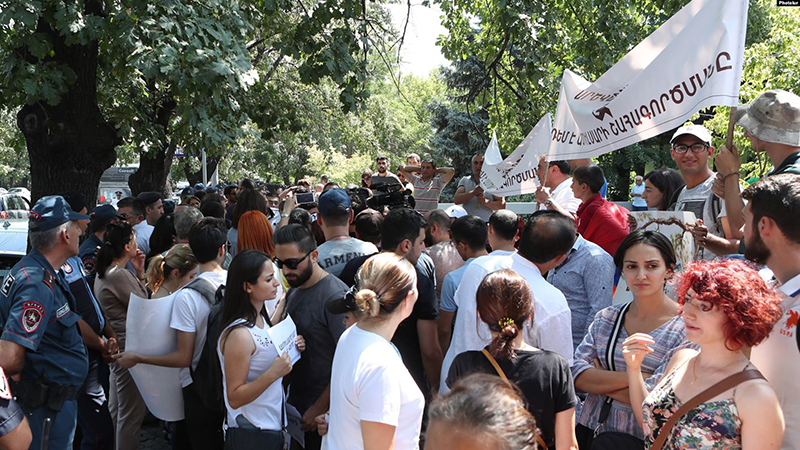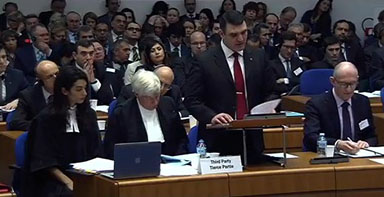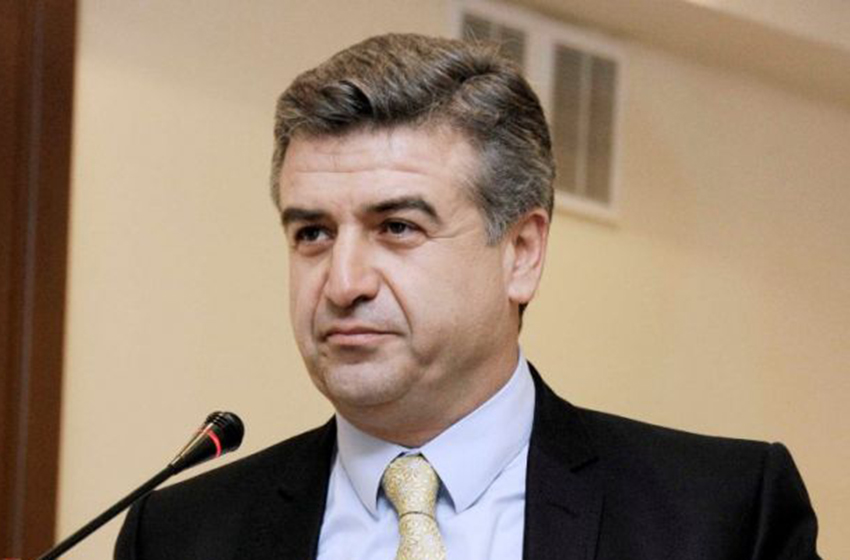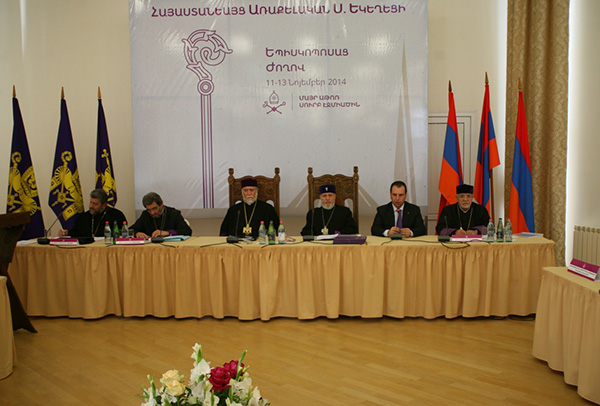YEREVAN (RFE/RL) — Citing the findings of an independent environmental audit commissioned by his government, Prime Minister Nikol Pashinyan announced on Monday his intention to allow an Anglo-American company to restart a controversial gold mining project in Armenia disrupted a year ago.
Pashinyan said that the company, Lydian International, will have to stick to “unprecedentedly high environmental standards that have not been applied in Armenia until now.”
He said that the government will also force other mining companies operating in the country to gradually comply with those standards. He claimed that some of those companies have sponsored environmentalists’ campaigns against Lydian in an effort to kill the Amulsar project and thus avoid spending large sums of money on improving their notoriously poor environmental records.
Work on the massive gold mine located in the southeastern Vayots Dzor province started in August 2016 following a lengthy licensing process. But it ground to a halt in June 2018 as several dozen protesters blocked all roads leading to Amulsar. The roads have remained closed since then, with the protesters saying that gold mining and smelting operations there would pollute air, soil and water resources.
Lydian, which claims to have already invested $400 million in the project, dismisses these concerns, saying that it will use modern and safe technology.
Early this year, the Armenian government hired a Lebanese environmental consultancy, ELARD, to conduct an environmental assessment of what would be one of the biggest foreign investment projects ever implemented in Armenia. Pashinyan and other officials indicated that Lydian’s renewed operations will depend on the results of that audit.
ELARD was specifically tasked with looking into the project’s potential impact on Jermuk, a famous spa resort located around 20 kilometers from Amulsar, and the more remote Lake Sevan.
According to ELARD’s final report publicized by an Armenian law-enforcement agency last week, underground water at Amulsar is not connected with mineral water sources in Jermuk or rivers and canals flowing into Sevan.
The 200-page report says that gold mining poses greater environmental risks for other rivers flowing through Vayots Dzor. But it says they can be minimized if Lydian takes 16 “mitigating measures” recommended by ELARD. Lydian has expressed readiness to take virtually of all those measures.
In an 80-minute live broadcast aired through Facebook, Pashinyan insisted that the Amulsar project does not carry any environmental risks for Jermuk and Sevan.
“We will carry out constant monitoring and if we see that Lydian does not ensure zero emissions of contaminated water from the mine we will first warn and give it 90 days to rectify things,” he said. “If that is not done [within 90 days] the mine will be closed. The government has all the levers to solve this issue.”
Pashinyan argued that right from the beginning his government made Lydian’s renewed operations at Amulsar primarily conditional on the environmental safety of Jermuk sources and Sevan. “We must today honor our own condition [set for Lydian,]” he said, adding that failure to do so would make Armenia look like an “unserious state” in the eyes of the outside world.
Pashinyan made the comments hours after meeting with parliament deputies representing his My Step alliance. Some of those lawmakers make no secret of their continuing opposition to the Amulsar project.
Earlier on Monday, Pashinyan held a separate meeting with local government officials from Jermuk and nearby rural communities as well as local and Yerevan-based environmental activists also hostile to the project. The latter seemed dissatisfied with Pashinyan’s statements made at the meeting. They insisted that gold mining at Amulsar would wreak havoc on the national ecosystem.
The activists then joined about 200 protesters that rallied outside the venue of the meeting with Pashinyan. They marched to the nearby parliament compound in Yerevan but were not allowed to enter it.
The crowd responded by trying to block an adjacent busy street. Riot police were quick to forcibly restore traffic though the street. Several protesters were detained on the spot.
In his video address, Pashinyan did not say whether the authorities are now also ready to use force against the people continuing to block Lydian’s access to Amulsar.
The company has repeatedly condemned the blockade as illegal and criticized the Armenian government for not lifting it. In March, it openly threatened international legal action against Armenia.
The Amulsar project has been supported by the U.S. and British embassies in Yerevan. U.S. diplomats have warned that continued disruption of Lydian’s operations could scare away other American investors interested in Armenia.
Lydian is registered in a British tax haven, headquartered in the U.S. state of Colorado and listed on the Toronto Stock Exchange. Its shareholders include U.S., Canadian and European investment funds as well as the European Bank for Reconstruction and Development.
The company planned to produce 210,000 ounces of gold, worth over $315 million at current international prices, annually at Amulsar. It also pledged to create about 800 permanent jobs and pay about $50 million in annual taxes.

